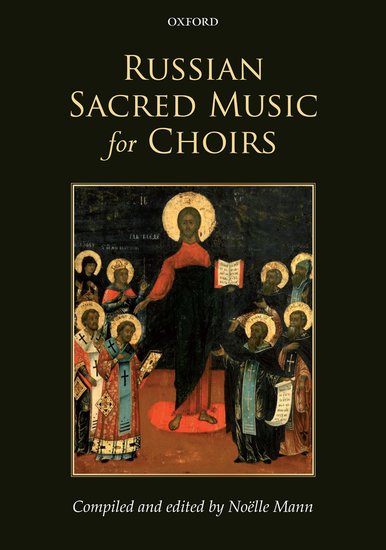Donald Rumsfeld has rather soured the notion of discovering things of which we were previously unaware. If you don’t recall the quote, it’s worth reminding yourself:
Rumsfeld may have been eager to find his ‘unknown unknowns’, but ultimately his sought-after objects weren’t good ones. Yet there are very many wonderful things, as yet outside of one’s world view, whose discovery may change the way we think about this or that – a great novel, the landscape of a country seen for the first time, or a new musical repertoire.
 And this is where I am rather jealous of the future readers and performers of the new OUP choral collection Russian Sacred Music for Choirs. I already know the music in this collection and will therefore not experience again the wonder of getting to know this repertoire for the first time.
And this is where I am rather jealous of the future readers and performers of the new OUP choral collection Russian Sacred Music for Choirs. I already know the music in this collection and will therefore not experience again the wonder of getting to know this repertoire for the first time.
I first met its editor Noëlle Mann in the late 1990s as I began my PhD at the University of London. During the course of my studies, I had met (and often had the privilege of being taught by) some incredibly gifted, dedicated musicians and academics. Noëlle was all of that but what struck me most profoundly was the irresistible drive and boundless energy she applied to any venture to which she committed herself. For any sphere in which Noëlle worked, there were no casual observers; the irresistible and happy vortex Noëlle created left nobody watching dispassionately from the wings. You simply got involved.
It just so happens that the Russian choral repertoire was Noëlle’s longest-standing preoccupations and prolific vortices. Her love of this repertoire led her to found the Kalina Choir, the first UK choir exclusively dedicated to performing this repertoire, and teach this music (in performance and practice) to generations of university students. In her edited collection, Noëlle’s vision was to offer to English-speaking choirmasters and their choirs a glimpse into a world of choral music almost unknown outside Russia.
Noëlle sadly died in 2010 before the anthology was completed. Anyone who came to know Noëlle and her work — whether on Russian sacred chant and choral music, or the life and work of Prokofiev — will very quickly have understood that, for her, music was fundamentally and inescapably human and performative. This collection bears witness to that and is the product of many years of directing performances of this repertoire. Every concert of Noëlle’s I attended invariably closed with a setting of ‘Many years’ (Mnogaya leta), a celebratory hymn wishing the person(s) to whom it is sung a long and peaceful life. By the same token, I wish all who discover this incredible repertoire many years of enjoyment and musical fulfilment.


Yes, for Noëlle, performance was all, throughout her life. A keen intellect was always in the service of performance in all its aspects. Chris